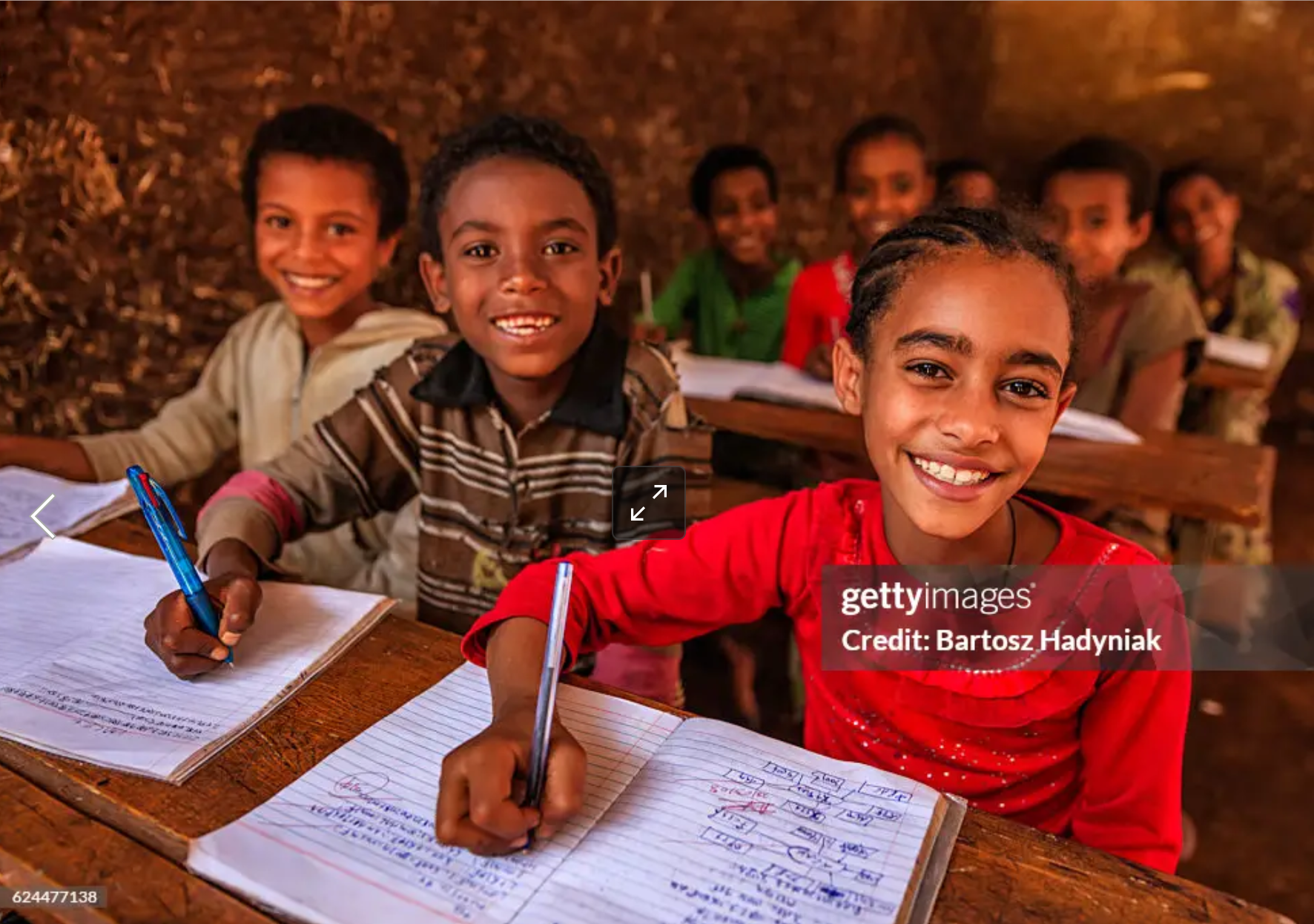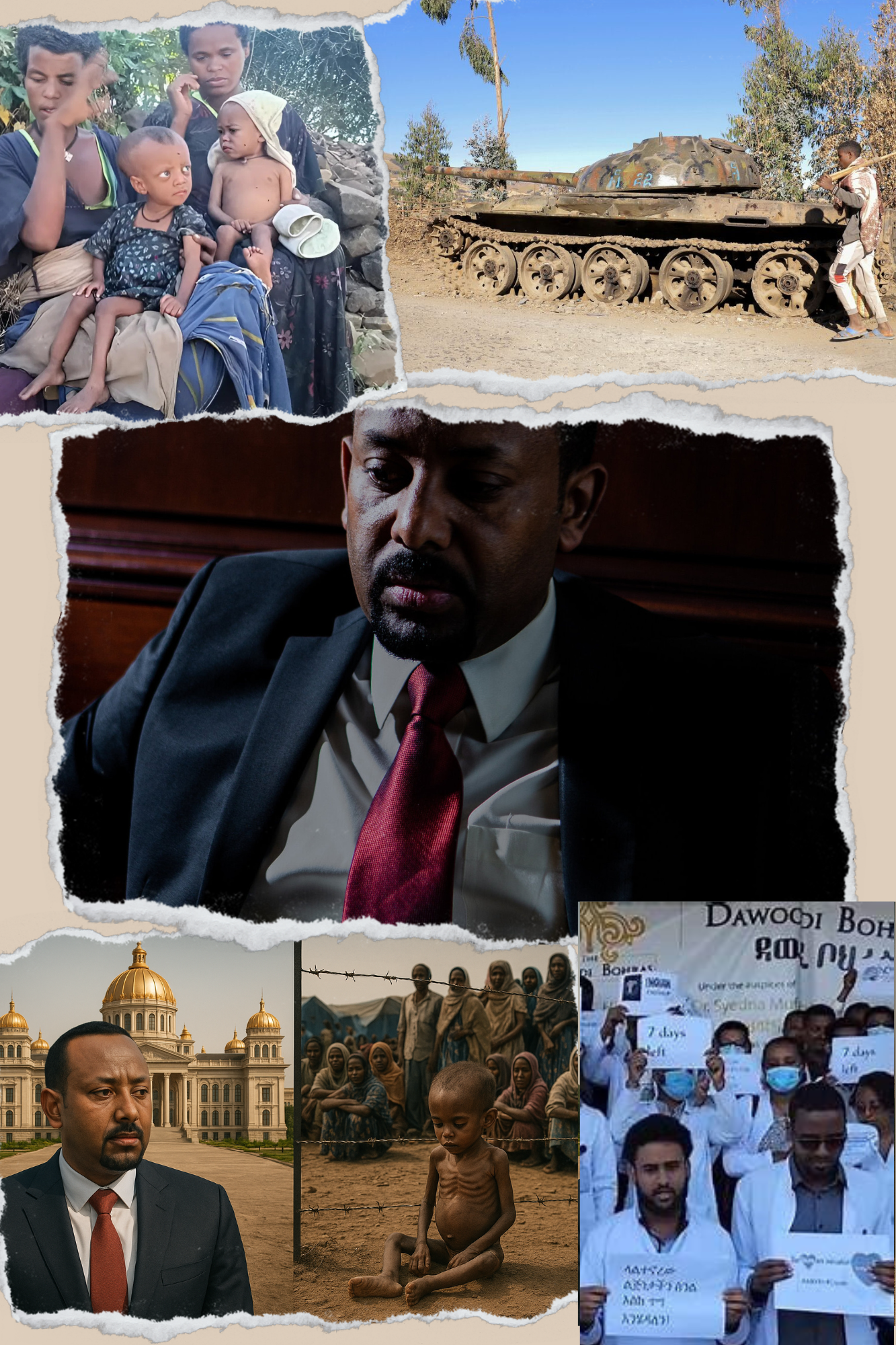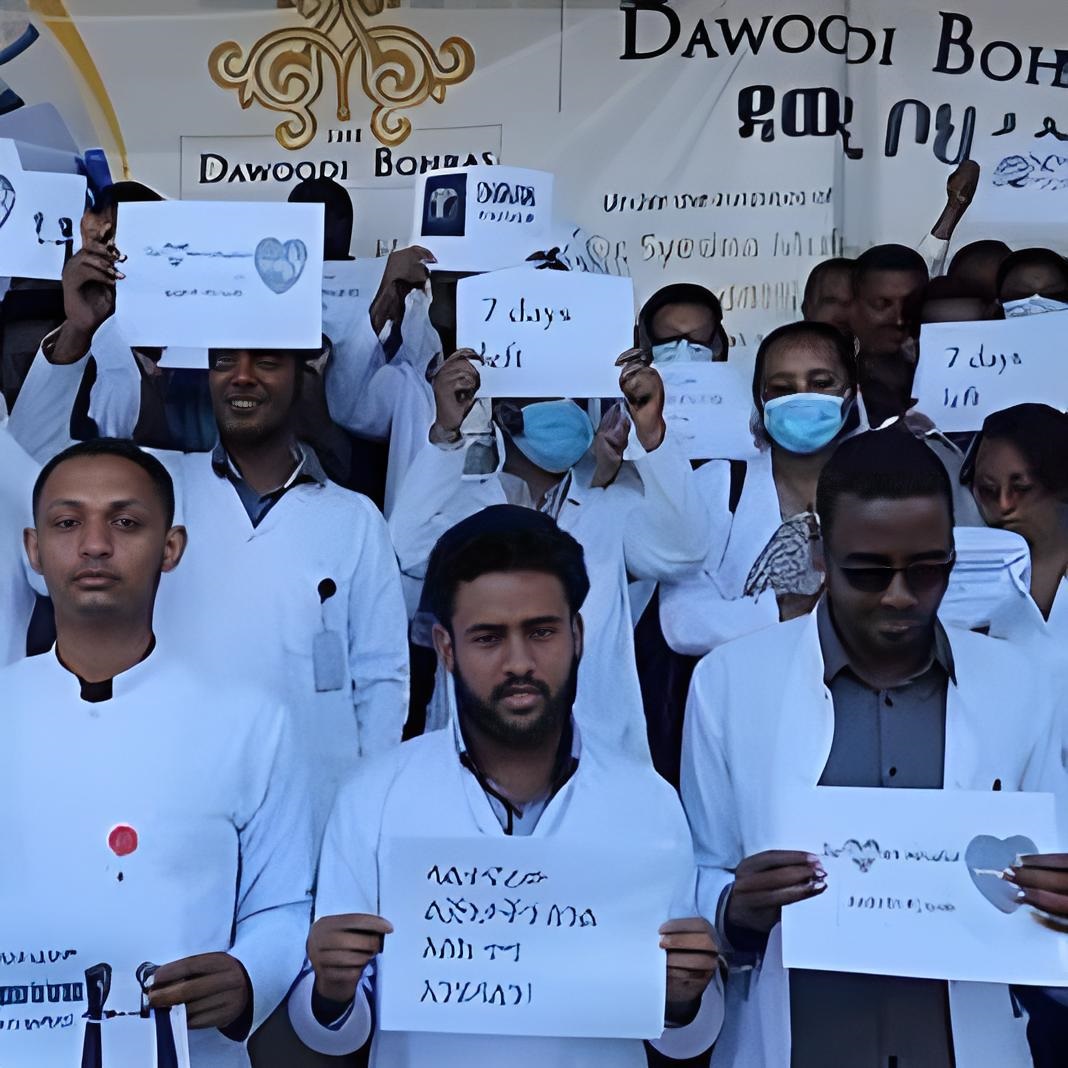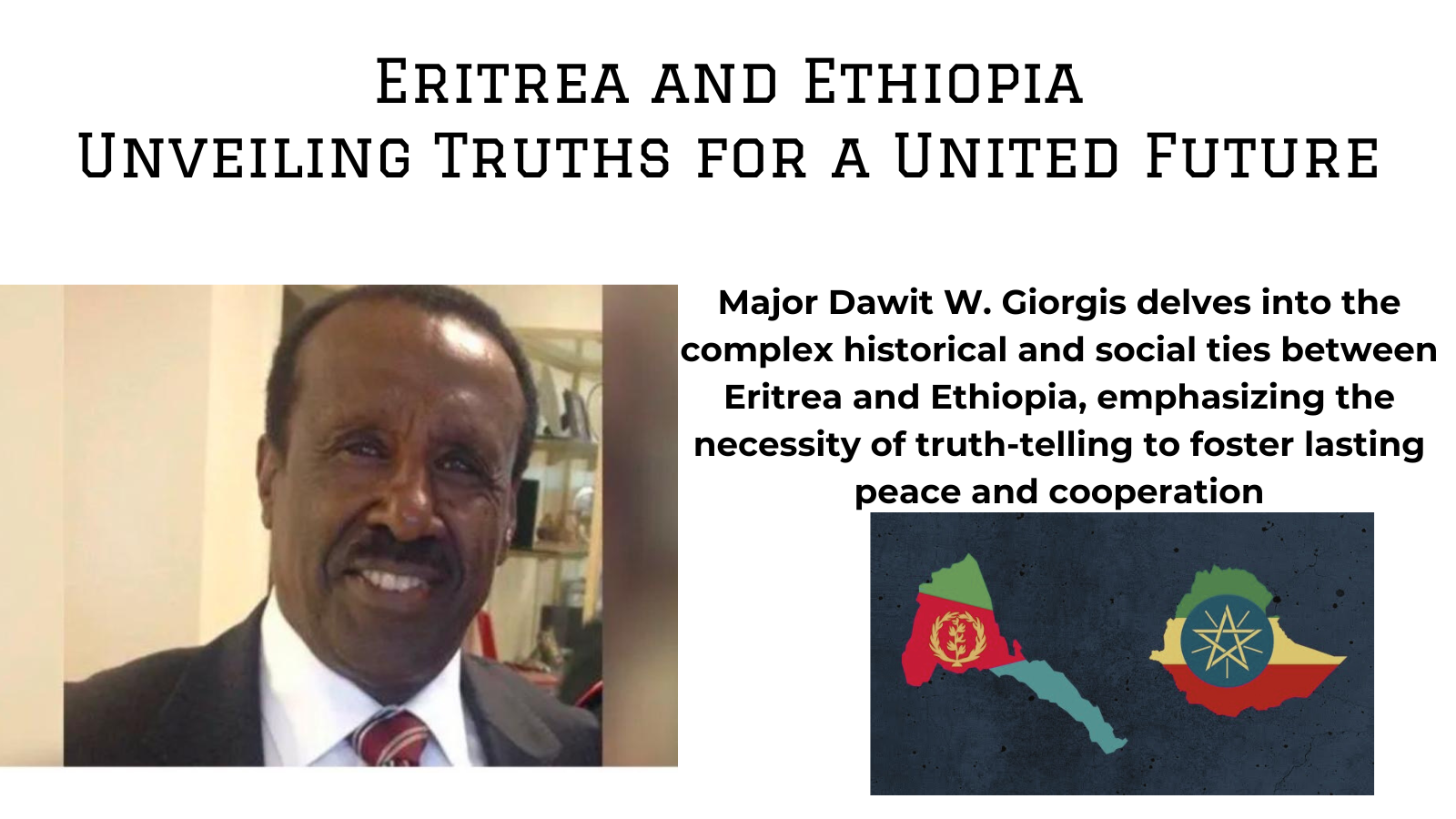
|
Getting your Trinity Audio player ready...
|
ETHIOPIA ERITREA
UNVEILNG TRUTHS FOR A UNITED FUTURE
Eritrea is an independent sovereign state. Ethiopia and Eritrea have a shared sense of national identity with a common history and ethnic, linguistic, cultural, and religious background, which cannot be undone. The sharing of the many factors of national identity has, will, and should facilitate social cohesion. That is why the war of independence between Ethiopia and the secessionist movement has not significantly affected the social cohesion between the two peoples. It was not a people’s war. It was a war for and against independence between government troops and secessionist forces.
One cannot have peace and prosperity without the other. This can be achieved through understanding the truth behind Eritrea’s independence. Fake stories are abundant and they have and will become obstacles to peaceful existence. What I present to the young generation in ten short separate articles is what I believe is the truth that the new Eritrean and Ethiopian generations should know: the truth researched, experienced, and discussed as registered in credible books and in international legal documents.
The truth can only bring us closer. “Then you will know the truth, and the truth will set you free.” John 8:32. Propaganda and disinformation have always been used as political and military weapons, regardless of country or period of history. Controlling information and the media means ensuring population control because information directly influences our thoughts, emotions, behaviors, and opinions. Hiram Johnson, a Republican senator from California, is often credited with saying, “The first casualty when war comes is truth” and research has shown that through the ages, war and conflict have always been marked by the use of lies, propaganda, and what we now often refer to as mis- or dis-information.
In what is considered one of the foundational texts for understanding modern war and conflict, Clausewitz notes that a ‘great part of the information obtained in war is contradictory, a still greater part is false, and by far the greatest part is doubtful’ (Clausewitz 2017, 46). Many might not like this series of articles because it distorts the narrative that has been told over and over again. Ethiopians and Eritreans !!! The war for independence is over. The only thing that is left is the current regime in Ethiopia, and we shall deal with it together.
The war for independence is over. Truth-telling is essential to achieving long-lasting peace and relationships. It helps reduce tensions between people and nations, who benefit more from the ties that have bound them for more years than the years of hostility. To build a dignified and inclusive future, it is necessary to overcome divisive narratives by establishing an objective account of the violent past.
In many post-conflict settings, efforts to establish a reliable account of what happened during the conflict have taken the form of a truth commission. Truth commissions are temporary, official inquiries established to determine the facts, causes, and consequences of past human rights violations. Victims are at the heart of such truth-seeking processes because oftentimes their voices have been silenced or ignored for years. The current atmosphere prevailing in Ethiopia under Abiy Ahamed might not be the right time for such an important national-level project. But we have begun the healing process at the community level, and under a different situation, institutionalized efforts might be necessary.
I believe that a sustained peaceful relationship between Eritrea and Ethiopia is possible and essential for all the reasons I have written several times in my books and articles. I have dreamt of this for a long time. The two people can overcome this if they can only agree on what happened. The peaceful coexistence of the two people will usher in lasting common prosperity and mutual security that can make Ethiopia and Eritrea the leaders of Africa and the region beyond and across the Red Sea. Two independent sovereign countries bonded by history culture religion language and by common persistent enemies have all the reasons to succeed. Leaders come and go: Eritrea and Ethiopia will always be there like twins tied at the hips.
The following might irritate many because it negates the version that they have been told over and over again. Read this with good intent and challenge and verify it by reading the references I have indicated. I know the young will have no patience for reading long stories. The truth is derived not from social media but from research and from people who have lived the period. That is why I’ve presented to you short, brief articles in 11 parts. I have told the truth for no other purpose than to bring the two people together. Since modern readers, particularly the youth, don’t read long articles, I have presented to you here 11 brief, intense, and extremely informative articles just for you, young Eritreans and Ethiopians, and students of Eritrea, Ethiopia, and Africa.
They are the results of painstaking research written in more detail in my latest book, What A Life. My interpretation of the facts and the law might be different from some of you. Let us agree on what we can leave the rest for others to handle and move on.
Part One: Eritrea’s Long Road to Independence
Part Two: Eritrea and the Issue of Self-Determination
Part Three: A Quick Look at the Background of the Federation
Part Four: Questions of Access to the Sea
Part Five: “Why did the Federation Fail?.” The Abrogation of the Federal System
Part Six: The Referendum for Independence: Was it Legal?
Part Seven: The Government of Eritrea at Independence
Part Eight: Did Ethiopia Colonize Eritrea?
Part Nine: Reflection of My Governorship of Eritrea.
Part Ten: The Creation of Eritrea.
Part Eleven: Oromay
Last week, there was an international conference on Eritrean Studies. According to Yemane G. Meskel : “the conference was a resounding success. By all standards, over 154 research papers on a wide spectrum of themes were discussed.“ I applaud that. But during such critical times when the geopolitics of the region is fast changing in favor of nobody except those who want to subjugate Eritrea and Ethiopia must come out strong and united to fight back the new scramble for Africa, which is pushing aggressively through the Horn of Africa.
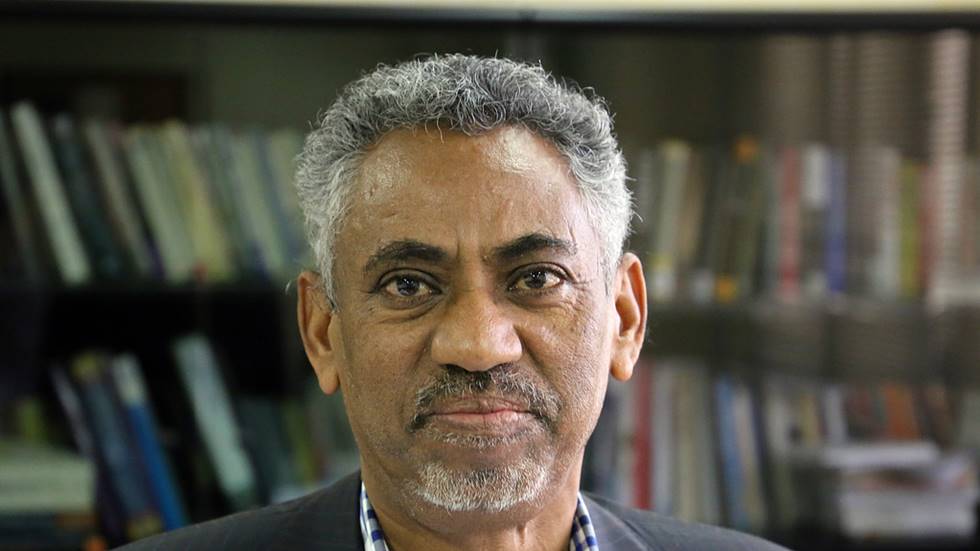
Yemane G. Meskel hailed the recent international conference on Eritrean Studies as “a resounding success,” highlighting the discussion of over 154 research papers on diverse themes. He emphasized the urgency for Eritrea and Ethiopia to unite amidst rapidly shifting regional geopolitics, cautioning against external forces seeking to exploit the Horn of Africa in a modern “scramble for Africa.”
The frontline is Eritrea, with 3300 km of country coastline, 354 islands and islets, 55,000 square km of territorial waters, and 120,000 square km off EEZ. The Horn of Africa and the Middle East have now become one security complex and are currently the most dangerous in the world. The strategic approach to this destabilization is fighting one against the other and creating new alliances. The shift in alliances is being spearheaded directly by the USA and Europe and their proxies in the Middle East.
The united stand of Eritrea and Ethiopia can easily overcome this huge challenge. But first and foremost, the major tool of this destabilization, the regime of PM Abiy Ahmed of Ethiopia, must be removed. In this, Eritrea must play a role in supporting the internal movement to remove tyranny and impose democracy that brings peace to Ethiopia and introduces a policy of peaceful co-existence with Eritrea. It is a just rebellion to stop genocide, to unite the country, and to stop being the surrogate of other powers. The regime in Ethiopia is a security threat to the region and beyond and must be stopped. I don’t intend to dwell on what Eritreans should do to improve their governance to make the changes in both countries compatible and strengthen the unity of purpose. But one thing is certain. Ethiopians and Eritreans must first deal with their past. This series is dedicated to that.
Editor’s Note: The views expressed in articles published by East African Review are those of the individual authors, institutions and do not necessarily reflect the perspectives of the editorial team or East African Review as an organization. The publication of any Op-Ed piece does not imply endorsement by East African Review.—please feel free to share them in the comments section below or email us at [email protected].
